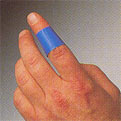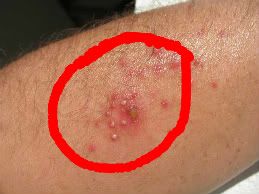In rooms containing open food or whilst handling open food, smoking is strictly not allowed. The reason is because smoking encourages coughing which leads to infections and contamination, it also causes an unsatisfactory working environment for non-smokers and lastly, food contamination may orrur when the fingers touch the lips during smoking. Cigarette ends may drop into the food and the ends contaminated with saliva may be placed on the work bench. The no smoking sign must be displayed clearly.
About Us
- KOPI-SHOP
- We are students from baking&culinary science and we are doing on a Project regarding Hygiene.
We will explain the rationale of good and bad Personal hygiene and provide relevant informations
on practices to ensure an appropriate degree of personal cleanliness.
Group Members: Zi Pei Rapika Li Yee Erika
Monday, 30 May 2011
Personal Hygiene in Nose, Mouth, Ears
Every time you cough or sneeze, it carries droplet infections that go a considerable distance. Therefore, staff with very bad colds should not handle food as it is spread through the air. Hands should be washed after you blow your nose with a single-use paper hankerchief rather than a soiled hankerchief.
While working, you should not eat sweets.
Spitting can result in food contamination therefore spitting is strictly forbidden.
Staff with ear or eyes discharge should not handle food as it may go into the food and contaminate them.
Personal Hygiene in Hair
I bet most of you do not know that our scalp actually contains pathogens such as Staphylococcus aureus. It is a good practice to shampoo your hair regularly if you are working in a food establishment because pathogens can easily get into the food that you are preparing. Hair should be completely covered with suitable head coverings such as hairnets, helmets and hats.
If you need to adjust your head covering or comb your hair, if should be done in the cloakrooms before putting on protective clothing. This is to prevent hair from dropping onto protective clothings and then transferred into food. Hairgrips and clips are not allowed.
If you need to adjust your head covering or comb your hair, if should be done in the cloakrooms before putting on protective clothing. This is to prevent hair from dropping onto protective clothings and then transferred into food. Hairgrips and clips are not allowed.
Sunday, 29 May 2011
PERSONAL HYGIENE THE SKINS



Here are some of the safety precautions:
1) Do not handle foods after getting cuts, boils, skin infections or septic spots
2) Wounds should be fully covered with detectable waterproof plasters (green or blue) immediately to prevent it from being infected
3) Go to the first aid kid and check if there's any medicated cream to ease the burn if any
3) Go to the first aid kid and check if there's any medicated cream to ease the burn if any
4) It may not sound like a curing method but more of a prevention method. Ensure that each employee is properly dressed for work
5) Loss of dressings needs to be reported as soon as possible
PERSONAL HYGIENE THE HANDS



It is definitely a must to ensure that your hands are clean before proceeding to any food establishments. Hands are prone to be contaminating food with pathogens if they are not properly cleaned. Keeping fingernails short and clean without using any nail polish is the first step. The second essential step is to wash hands thoroughly and regularly.
 X
X  X
X 
 X
X  X
X Here are few of the lists of the critical timing to wash hands:
1) Before handling food
2) After touching raw food and proceeding to touch ready-to-eat foods
3) After throwing waste
4) After packaging of food
5) After going to the restroom


During hand washing, ensure that
1) Water is warm (45-49°C)
2) No perfumed liquid/gel/foam soap
a. Just simple anti-bacterial soap will do!
3) Dry hand properly by:
a. Disposable paper towels
b. Warm air
c. Linen cabinet towels
Saturday, 28 May 2011
ROLES OF MANAGEMENT
-Provide a hygienic working environment

-Close supervision to ensure staff always wash their hands before handling foods.

-Provide adequate resources to facilitate practice of good personal hygiene
-Protective clothing
-Liquid soap, paper towel, cleaning time
-Wash-hand basin at the entrance of food room

-Close supervision to ensure staff always wash their hands before handling foods.

-Provide adequate resources to facilitate practice of good personal hygiene
-Protective clothing
-Liquid soap, paper towel, cleaning time
-Wash-hand basin at the entrance of food room
The Don'ts
- Do not open bags or pick up sheets of wrapping paper with wet fingers
- Do not nose pick
- Do not scratch head or spots
- Do not taste food with an unwashed tasting spoon
- Do not handle food without washing hands
- Do not cough or sneeze on to food
- Do not use food sink for hand washing
- Do not use a hand-washing basin to rinse utensils
- Do not eat chewing gum, sweets or food in food preparation areas while preparing food
Jewellery & Perfume
- No earrings, watches, jeweled rings or broaches should be worn
- Strong smelling perfume or aftershave is not allowed
Clothing
What workers should wear...
- light colored, durable, washable, clean clothes without external pockets
- appropriate for work
- completely covered ordinary clothing
- should not be removed upon food handling
- clean boots for wet areas
- anti-slip shoes
- aprons should be worn, disposable apron may be worn too
- disposable gloves
- hands must be thoroughly washed before putting on gloves
- while outside food premises, apron should be taken out
- if disposable gloves or apron is worn, it is best to change every few hours
STAFF SELECTION
Personal appearance & attitude:
-Clean, neat and tidy appearance
-Absence of skin infections

-Good dental hygiene

-Clean hands with short fingernails and no evidence of nail-bitting.

-Absence of excessive personal jewellery or makeup


-Clean shoes, suitable for the work area
-A belief in the need for hygiene


-Clean, neat and tidy appearance
-Absence of skin infections

-Good dental hygiene

-Clean hands with short fingernails and no evidence of nail-bitting.

-Absence of excessive personal jewellery or makeup


-Clean shoes, suitable for the work area
-A belief in the need for hygiene
Medical Sceening:
- Ascertain applicant's medical history relating to food borne illness, food poisoning or
persistent diarrhea
- Complete medical questionnaire
-Interview by a doctor/nurse in necessary
-Submit fecal/stool and blood specimens if neccessary
-check X-ray


Exclusion of food handlers
-Food handlers should inform management if :
-they are suffering from or a carrier of a food borne disease.
-they have infected wound, skin infections and sores.
-they have been travelling to countries with warm climates and suspect sanitation.
-they may be required to undergo medical screening before they are allowed to handle food.
Friday, 27 May 2011
Storage Of Foods
- Meat should be stored in containers in the chiller or freezer
- Raw meat should be stored separately with other foods like vegetables and cooked food to prevent contamination
- Raw meat should be stored at the bottom of the chiller or freezer so as to prevent drippings which would contaminate other foods

- Cooked food and raw food should be kept at different compartments of the fridge
- The storage place must be washed and cleaned every month or every few weeks
Subscribe to:
Comments (Atom)










